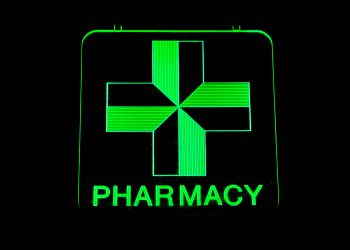There is no universal solution to addiction recovery. Each person’s journey is unique and influenced by their background, experiences, and struggles. That’s why tailored recovery programs designed to meet individual needs have become a critical approach to effective treatment. These personalized programs offer more flexibility, addressing each aspect of a person’s addiction and overall well-being.
Choosing the right facility plays a vital role, and for those seeking rehab in Monterey, the serene environment offers the ideal backdrop for a focused recovery. You can find custom-tailored programs with specialized care, ensuring that unique circumstances are taken into account.
Here’s how tailored recovery programs can help you:
1. What Are Tailored Recovery Programs?
Tailored recovery programs are designed to meet each person’s individual needs, as opposed to generic treatment plans. In traditional rehabilitation, many facilities offer standardized programs that treat addiction with a one-size-fits-all approach. While these methods may be effective for some, they often fail to address each person’s unique challenges during their recovery.
On the other hand, personalized treatment programs assess each individual’s specific circumstances. This includes their type of addiction, mental health conditions, family background, and any other factors that may influence their addiction. By tailoring treatment to these needs, individuals are more likely to engage in recovery, stay motivated, and achieve long-term sobriety. This flexibility makes tailored recovery programs a much more practical solution for those looking to break free from addiction.
2. How Rehab Centers Offer Personalized Care for Professionals
For professionals such as CEOs, executives, and other high-profile individuals, the demands of their careers can add unique challenges to addiction recovery. Often, these individuals face immense personal and professional pressure, making it difficult to focus solely on their treatment. The need for privacy and discretion further complicates the process.
Monterey Bay Recovery understands the distinct needs of professionals seeking transformative recovery experiences. By offering personalized care that considers their demanding schedules and personal responsibilities, the rehab center ensures a treatment program designed specifically for professionals. Whether through flexible schedules, confidential environments, or tailored therapy plans, the facility provides a safe space where professionals can focus on their recovery without the stress of external pressures.
It also tailors its programs to meet the needs of these individuals, making it a top choice for those seeking effective private rehabilitation.
3. Addressing Different Types of Addiction
Addiction comes in many forms, whether it’s substance abuse related to alcohol, illicit drugs, or prescription medications. Each type of addiction requires a specialized approach to treatment. What works for alcohol addiction may not work for opioid addiction, and the treatment for prescription drug dependency may require a completely different set of interventions.
Tailored recovery programs take this into account by assessing the type of addiction an individual is facing and creating a customized treatment plan accordingly. This often involves specific therapies that target the root cause of the addiction and methods that are proven to work for that particular substance. Whether it’s medical detox, therapy, or a combination of approaches, personalized care ensures that individuals receive the precise treatment they need for their type of addiction.
4. Incorporating Mental Health into Treatment Plans
It’s no secret that addiction and mental health issues often go hand in hand. Conditions such as depression, anxiety, PTSD, or bipolar disorder frequently co-occur with substance use disorders, creating a cycle that is difficult to break without addressing both issues simultaneously. Tailored recovery programs are designed to treat both the addiction and any underlying mental health conditions.
By incorporating mental health treatment into recovery plans, rehab centers can provide a holistic approach to healing. This includes individual therapy sessions, psychiatric evaluations, and medications where necessary, ensuring that both the mind and body are addressed during treatment. This approach not only helps individuals recover from addiction but also empowers them to manage their mental health effectively in the long term.
5. Importance of a Holistic Approach
A successful recovery program doesn’t just focus on breaking the physical dependency on a substance; it also aims to restore overall well-being. Holistic treatment is a key component of tailored recovery programs, addressing not just the addiction but the emotional, physical, and spiritual needs of the individual.
Holistic approaches may often include yoga, meditation, and mindfulness, which help individuals reconnect with themselves and develop healthier coping mechanisms. Nutritional therapy is also critical to recovery, as proper diet and exercise can significantly improve mood, energy levels, and overall health. Combined, these holistic treatments create a more comprehensive recovery process, ensuring that individuals heal in all areas of their lives.
Incorporating a holistic approach helps foster long-term recovery and prevents relapse by equipping individuals with tools they can use beyond their treatment experience.
6. The Role of Family in Personalized Recovery Plans
Family plays a crucial role in the recovery process, and tailored programs often integrate family support as part of the treatment plan. Addiction can have a ripple effect, causing emotional, financial, and psychological strain on loved ones. Including family members in the recovery process not only helps the individual but also facilitates healing for everyone affected by the addiction.
In personalized recovery programs, family therapy sessions are often incorporated to help rebuild trust, improve communication, and educate family members on supporting their loved ones in recovery. These sessions address the family dynamic, identify enabling behaviors, and foster a healthy environment for long-term sobriety. By involving families, individuals can feel more supported, and the foundation for a successful recovery is strengthened.
In many cases, individuals who have gone through tailored recovery programs credit the customized treatment plans with helping them maintain long-term sobriety. These success stories are powerful examples of how individualized care can transform lives, restore families, and pave the way for healthier futures.
Tailored aftercare plans ensure individuals have the resources and support to navigate life post-treatment. This might involve connecting individuals with local support groups, providing access to continued therapy sessions, or helping them develop coping strategies to prevent relapse. By focusing on long-term support, personalized recovery programs increase the chances of sustained sobriety and overall well-being.

















